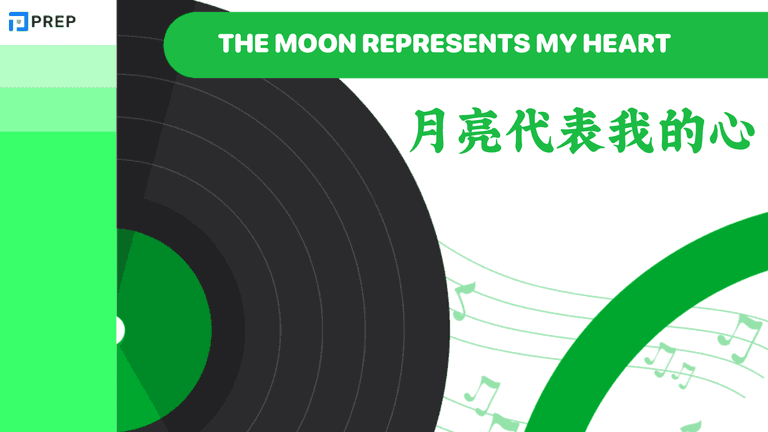100+ Chinese Nicknames: The Complete Guide to Meanings, Rules
Chinese nicknames operate as linguistic currency within intricate social economies, where each appellative choice signals precise relational coordinates along axes of hierarchy, intimacy, and cultural positioning. These morphological transformations—from formal 王明 (Wáng Míng) to familiar 小王 (Xiǎo Wáng)—function as sociolinguistic markers that encode complex power dynamics within 关系 (guānxi) networks. This comprehensive analysis decodes formation patterns, contextual applications, and etiquette protocols that transform potential intercultural miscommunication into sophisticated relationship management and authentic community integration.
I. Why Chinese Nicknames Matter More Than You Think
Picture this scenario: you meet your Chinese friend's family, and throughout dinner, you notice something peculiar—everyone calls your friend by a completely different name than what you know them by. Your friend Li Wei suddenly becomes "Xiao Wei" to colleagues, "Wei Wei" to close friends, and "Pang Pang" to their grandmother. This linguistic transformation reveals one of the most fascinating aspects of Chinese culture: nicknames are far more than casual abbreviations or playful alternatives to formal names.
Chinese nicknames serve as a sophisticated social language that defines and expresses the intricate web of relationships known as 关系 (guānxi). Unlike Western nicknames that often emerge from physical characteristics or memorable incidents, Chinese nicknames function as precise instruments for navigating social hierarchies, demonstrating intimacy levels, and showing respect within different contexts. They represent a cultural code that, once understood, unlocks deeper layers of Chinese social interaction and allows you to participate more authentically in Chinese communities. Understanding these naming conventions provides you with invaluable insight into Chinese society's emphasis on relationships, respect, and social harmony.
II. How to Form Chinese Nicknames: Basic Patterns and Rules
The foundation of Chinese nicknames rests on specific linguistic patterns that have evolved over centuries to create meaningful and socially appropriate terms of address. These patterns follow predictable rules that, once mastered, allow you to understand the relationship dynamics at play in any Chinese social setting.
1. Key Prefixes and Suffixes You Need to Know
Chinese nicknames follow predictable patterns using specific prefixes and suffixes that indicate relationship levels and social context. Understanding these building blocks helps you decode the social dynamics behind any nickname you encounter.
-
小 (xiǎo) - "Little": Most versatile prefix for workplace (小王 Xiǎo Wáng) and affectionate address (小美 Xiǎo Měi). Works across most social situations while maintaining respect.
-
老 (lǎo) - "Old": Expresses deep respect for valued peers, not age. Names like 老李 (Lǎo Lǐ) indicate relationships built on mutual respect and shared experiences.
-
阿 (ā): Southern China favorite for warm, approachable familiarity (阿华 Ā Huá). Perfect for friendly acquaintances who've moved beyond formal introductions.
-
儿 (ér) - suffix: Northern dialect specialty adding tender affection (花儿 Huār). Reserved for family members and romantic partners.
2. Three Main Ways to Modify Names
-
Reduplication: Doubles a character for cute nicknames like 丽丽 (Lìlì) from 美丽 (Měilì). Common for children and close female friends.
-
Last Character: Safe informal address using final character—周杰伦 (Zhōu Jiélún) becomes 杰伦 (Jiélún) among friends.
-
Characteristic-Based: References physical traits or personality like 帅哥 (shuàigē) "handsome guy." Requires deepest intimacy and trust—can strengthen bonds or cause lasting hurt depending on the relationship foundation.
III. 100+ Chinese Nicknames by Relationship Type
Understanding when and how to use Chinese nicknames requires recognizing the distinct social contexts in which they operate, each with its own set of expectations and appropriate forms of address.
1. Family and Children Nicknames (小名)
Close friendships in Chinese culture allow for the most creative and playful nickname usage, where affectionate teasing becomes a hallmark of genuine intimacy. The following table showcases popular cute chinese nicknames used among close friends, demonstrating how apparent insults actually express deep affection within trusted friendship circles:
|
No. |
Chinese Nickname |
Pinyin |
English Meaning |
|
1 |
猪头 |
zhū tóu |
Pig head |
|
2 |
饿猪 |
è zhū |
Hungry pig |
|
3 |
胖恐龙 |
pàng kǒnglóng |
Fat dinosaur |
|
4 |
金鱼 |
jīnyú |
Goldfish |
|
5 |
圣喜剧 |
shèng xǐjù |
Comedy saint |
|
6 |
矮人 |
ǎirén |
Short person |
|
7 |
傻子 |
shǎzi |
Silly person |
|
8 |
呆萌可爱 |
dāi méng kě'ài |
Adorably silly |
|
9 |
兄弟 |
xiōngdì |
Brother |
|
10 |
坚强的女孩 |
jiānqiáng de nǚhái |
Strong girl |
|
11 |
萌宝 |
méngbǎo |
Cute treasure |
|
12 |
牛牛 |
niú niú |
Little bull |
|
13 |
呆头 |
dāi tóu |
Silly head |
|
14 |
球球 |
qiú qiú |
Little ball |
|
15 |
小肉 |
xiǎo ròu |
Little meat |
|
16 |
绵绵 |
miánmián |
Soft cotton |
|
17 |
乐乐 |
lè lè |
Happy one |
|
18 |
小鲜肉 |
xiǎo xiān ròu |
Fresh little meat |
|
19 |
男神 |
nán shén |
Male god |
|
20 |
笨笨 |
bèn bèn |
Clumsy one |
|
21 |
小胖 |
xiǎo pàng |
Little fatty |
|
22 |
大胖 |
dà pàng |
Big fatty |
|
23 |
极客 |
jí kè |
Geek |
|
24 |
纯爷们 |
chún yémen |
Real man |
|
25 |
唐僧 |
tángsēng |
Tang monk |
|
26 |
小平头 |
xiǎo píngtóu |
Little flat head |
|
27 |
老铁 |
lǎo tiě |
Old iron (close buddy) |
|
28 |
眼镜 |
yǎnjìng |
Glasses |
|
29 |
大侠 |
dà xiá |
Great hero |
|
30 |
萌妹 |
méng mèi |
Cute girl |
|
31 |
小仙女 |
xiǎo xiānnǚ |
Little fairy |
|
32 |
美眉 |
měiméi |
Pretty girl |
|
33 |
女神 |
nǚshén |
Goddess |
|
34 |
大小姐 |
dà xiǎojiě |
Young lady |
These nicknames demonstrate how Chinese friendship culture embraces playful teasing as a sign of intimacy and comfort. Terms like 猪头 (zhū tóu) or 傻子 (shǎzi) would be offensive from strangers but become expressions of endearment when used by close friends who understand the underlying affection behind these seemingly harsh words.
2. Gender-Specific Nickname Patterns
Chinese Nicknames for Females:
Female nicknames often emphasize beauty, gentleness, and endearing qualities, as demonstrated in this comprehensive collection:
|
No. |
Chinese Nickname |
Pinyin |
English Meaning |
|
1 |
可可 |
kěkě |
Cocoa |
|
2 |
灵儿 |
líng er |
Spirit girl |
|
3 |
天天 |
tiāntiān |
Every day |
|
4 |
糖糖 |
táng táng |
Sugar |
|
5 |
御姐 |
yù jiě |
Elegant sister |
|
6 |
萝莉 |
luó lì |
Loli (cute girl) |
|
7 |
小金鱼 |
xiǎo jīnyú |
Little goldfish |
|
8 |
千金 |
qiānjīn |
Precious daughter |
|
9 |
校花 |
xiàohuā |
School flower |
|
10 |
女王 |
nǚwáng |
Queen |
|
11 |
豆豆 |
dòu dòu |
Little bean |
|
12 |
呆毛 |
dāi máo |
Stray hair |
|
13 |
咩咩 |
miē miē |
Baa baa (like sheep) |
Chinese Nicknames for Males:
Male nicknames frequently celebrate strength, capability, and distinctive characteristics:
|
No. |
Chinese Nickname |
Pinyin |
English Meaning |
|
1 |
宅男 |
zháinán |
Homebody |
|
2 |
技术宅 |
jìshù zhái |
Tech nerd |
|
3 |
叶良辰 |
yè liángchén |
Ye Liangchen (famous character) |
|
4 |
龙傲天 |
lóng ào tiān |
Proud dragon |
|
5 |
老大 |
lǎodà |
Big boss |
|
6 |
眼镜 |
yǎnjìng |
Glasses |
|
7 |
老好人 |
lǎohǎorén |
Good person |
|
8 |
特困生 |
tèkùn shēng |
Poor student |
|
9 |
妻管严 |
qī guǎn yán |
Henpecked husband |
|
10 |
当家的 |
dāngjiāde |
Head of household |
|
11 |
独眼龙 |
dúyǎnlóng |
One-eyed dragon |
|
12 |
大侠 |
dà xiá |
Great hero |
|
13 |
肌肉男 |
jīròu nán |
Muscle man |
|
14 |
和尚 |
héshàng |
Monk |
|
15 |
书呆 |
shū dāi |
Bookworm |
|
16 |
老王 |
lǎo wáng |
Old Wang |
|
17 |
暖男 |
nuǎn nán |
Warm man (caring guy) |
3. Chinese Nicknames for Boyfriend
Chinese pet names for boyfriends range from traditional formal terms to playful modern expressions that demonstrate affection and intimacy. These nicknames often emphasize respect, strength, or endearing characteristics while maintaining the comfortable familiarity essential in romantic relationships:
|
No. |
Chinese nicknames for boyfriend |
Pinyin |
English meaning |
|
1 |
老头子 |
lǎo tóuzi |
Old man |
|
2 |
先生 |
xiānsheng |
Mister |
|
3 |
相公 |
xiàng gōng |
Husband (traditional) |
|
4 |
官人 |
guān rén |
Master/husband |
|
5 |
他爹 |
tādiē |
His father |
|
6 |
我的白马王子 |
wǒ de báimǎ wángzǐ |
My prince charming |
|
7 |
小猪公 |
xiǎo zhū gōng |
Little pig husband |
|
8 |
丈夫 |
zhàngfu |
Husband |
|
9 |
老公 |
lǎogōng |
Hubby |
|
10 |
外子 |
wàizi |
My husband |
|
11 |
宝贝 |
bǎobèi |
Baby/treasure |
|
12 |
北鼻 |
běi bí |
Baby (from English) |
|
13 |
爱人 |
àirén |
Beloved |
|
14 |
情人 |
qíngrén |
Lover |
|
15 |
甜心 |
tiánxīn |
Sweetheart |
|
16 |
小熊 |
xiǎo xióng |
Little bear |
|
17 |
暖男 |
nuǎn nán |
Warm man |
4. Chinese Pet Names for Girlfriend
Chinese nicknames for girlfriends often emphasize beauty, sweetness, and cherished qualities, creating an atmosphere of protection and adoration. These terms range from traditional expressions of respect to modern playful endearments:
|
No. |
Chinese pet names for girlfriend |
Pinyin |
English meaning |
|
1 |
公主 |
gōngzhǔ |
Princess |
|
2 |
老婆子 |
lǎopó zǐ |
Old woman |
|
3 |
娘子 |
niángzǐ |
Lady wife |
|
4 |
小猪婆 |
xiǎo zhū pó |
Little pig wife |
|
5 |
爱妻 |
àiqī |
Beloved wife |
|
6 |
夫人 |
fū rén |
Madam |
|
7 |
小妖精 |
xiǎo yāo jīng |
Little enchantress |
|
8 |
小公主 |
xiǎo gōngzhǔ |
Little princess |
|
9 |
宝贝 |
bǎobèi |
Baby/treasure |
|
10 |
宝宝 |
bǎobao |
Baby |
|
11 |
甜心 |
tiánxīn |
Sweetheart |
|
12 |
小鸭子 |
xiǎo yāzi |
Little duck |
|
13 |
小猫 |
xiǎo māo |
Little cat |
|
14 |
小狗 |
xiǎo gǒu |
Little dog |
|
15 |
甜甜 |
tiántián |
Sweetie |
|
16 |
小蜜蜂 |
xiǎo mìfēng |
Little bee |
|
17 |
蜂蜜 |
fēngmì |
Honey |
|
18 |
乖乖 |
guāi guāi |
Good baby |
|
19 |
爱人 |
àirén |
Beloved |
|
20 |
情人 |
qíngrén |
Lover |
Understanding the cultural nuances behind seemingly insulting terms reveals sophisticated layers of Chinese romantic expression. Terms like 笨蛋 (bèndàn) meaning "idiot" and 傻瓜 (shǎguā) meaning "fool" actually function as highly affectionate nicknames between romantic partners, expressing the comfortable intimacy that allows playful teasing without any malicious intent.
IV. 5 Essential Rules to Avoid Nickname Disasters
Several absolute rules govern nickname usage, violations of which can create lasting social damage and embarrassment.
-
Never use someone's 小名 (milk name) in professional settings unless explicitly invited, as these intimate family nicknames have no place in workplace environments regardless of how friendly your relationship might seem.
-
Avoid creating characteristic-based Chinese nicknames yourself, particularly those referencing physical appearance, as these require years of established trust and should emerge naturally from the relationship rather than being imposed by newcomers.
-
Don't assume reciprocal nickname privileges exist, meaning that just because someone uses a nickname for you doesn't automatically grant you permission to use nicknames for them, especially if age, status, or cultural differences create inherent hierarchies.
-
Never use romantic pet names outside of romantic relationships, as terms like 宝贝 (bǎobèi) or other intimate expressions can create serious misunderstandings about your intentions and interest level.
-
Respect regional preferences and family traditions, recognizing that nickname customs vary significantly between Northern and Southern China, urban and rural communities, and individual family cultures that may have specific rules about name usage.
V. How to Get Chinese Nicknames (Without Being Awkward)
Acquiring an appropriate Chinese nickname requires patience and cultural sensitivity, with the best nicknames developing organically through genuine relationships rather than direct requests or self-assignment. The key lies in understanding that nicknames represent social trust and should emerge naturally as your personality becomes known within Chinese social circles.
-
Let It Happen Naturally: The most authentic path involves allowing native Chinese speakers to bestow nicknames upon you as relationships deepen and your character becomes familiar to them.
-
Ask Trusted Friends: Seek guidance from close Chinese friends, language teachers, or cultural mentors who understand both your personality and social context. Frame requests as seeking cultural expertise rather than demanding a nickname.
-
Safe Self-Selection: Choose a character from your translated Chinese name and add prefixes like 小 (xiǎo) or 阿 (ā). Example: 大卫 (Dàwèi) becomes 小卫 (Xiǎo Wèi) in casual settings.
-
Gaming Nicknames: For chinese nicknames for games or creating a chinese game name list, adapt traditional patterns while maintaining cultural respect. Consider elements like 龙傲天 (lóng ào tiān) "proud dragon" or 叶良辰 (yè liángchén) that reference popular characters.
-
Avoid Being Presumptuous: Stay away from overly creative choices that might sound strange to native speakers. Simple, respectful nicknames work best and can be easily adopted or modified by others..
VI. Conclusion
Chinese nicknames embody dual power—they build meaningful bridges between people while creating opportunities for misunderstanding when misused. These names function as precise instruments for navigating the complex web of Chinese social relationships. Armed with this understanding of Chinese nicknames, you can demonstrate respect, build genuine connections, and participate authentically in Chinese communities. Success lies not in memorizing lists but in approaching each relationship with genuine respect, careful observation, and willingness to learn from others.

Hi I'm Chloe, and I am currently serving as an Product Content Administrator at Prep Education. With over five years of experience in independent online IELTS study and exam preparation, I am confident in my ability to support learners in achieving their highest possible scores.
Comment
Premium content
View allPersonalized roadmap
Most read












